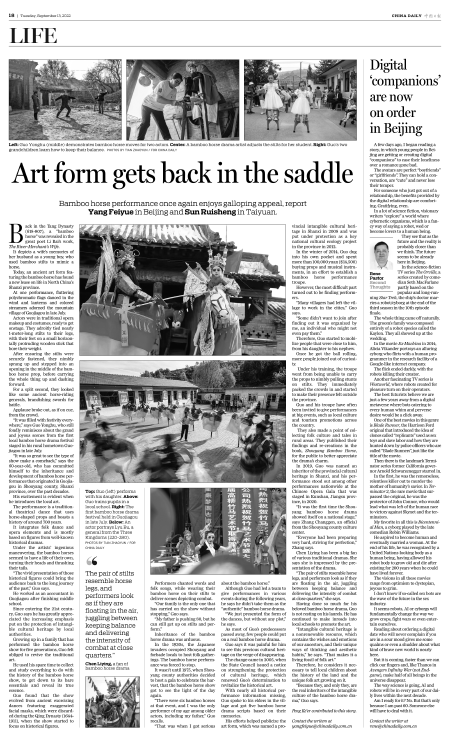
Rene Pastor
A few days ago, I began reading a story, in which young people in Beijing are getting or creating digital "companions" to ease their loneliness over a romance gone bad.
The avatars are perfect "boyfriends "or "girlfriends". They can hold a conversation, are "cute" and never lose their temper.
For someone who just got out of a relationship, the benefits provided by the digital relationship are comforting. Gratifying, even.
In a lot of science fiction, visionary writers "explore" a world where cybernetic organisms, which is a fancy way of saying a robot, wed or become lovers to a human being.
They see that as the future and the reality is probably closer than we think. The future seems to be already here in Beijing.
In the science-fiction TV series The Orville, a series created by comedian Seth MacFarlane partly based on the popular and long-running Star Trek, the ship's doctor marries a robot/cyborg at the end of the third season in the 10th episode finale.
The whole thing came off naturally. The groom's family was composed entirely of a robot species called the Kaylon. They all showed up at the wedding.
In the movie Ex Machina in 2014, Alicia Vikander portrays an alluring cyborg who flirts with a human programmer in the research facility of a Google-like internet company.
The flick ended darkly, with the robots killing their creator.
Another fascinating TV series is Westworld, where robots created for pleasure turn on their operators.
The best futurists believe we are just a few years away from a digital metaverse where bots catering to every human whim and perverse desire would be a click away.
One of the best movies in this genre is Blade Runner, the Harrison Ford original that introduced the idea of clones called "replicants" used as sex toys and slave labor and how they are hunted down by police officers who are called "Blade Runners", just like the title of the movie.
Then there is the landmark Terminator series former California governor Arnold Schwarzenegger starred in.
In the first, he was the remorseless, relentless killer out to murder the mother of humanity's savior. In Terminator 2, the rare movie that surpassed the original, he was the protector of John Connor, who would lead what was left of the human race to victory against Skynet and the terminators.
My favorite in all this is Bicentennial Man, a cyborg played by the late comedian Robin Williams.
He aspired to become human and eventually married a woman. At the end of his life, he was recognized by a United Nations-looking body as a human being, having allowed his robot body to grow old and die after existing for 200 years when he could have lived forever.
The visions in all these movies range from optimism to dystopian, joyous to grim.
I don't know if so-called sex bots are the wave of the future in the sex industry.
It seems robots, AI or cyborgs will fundamentally change the way we grow crops, fight wars or even entertain ourselves.
Reading about ordering a digital date who will never complain if you are in a sour mood gives me some qualms or even a shudder about what kind of brave new world is nearly here.
But it is coming, faster than we can click our fingers and, like Thanos in Avengers Infinity War (not Endgame), make half of all beings in the universe disappear.
The way science is going, AI and robots will be in every part of our daily lives within the next decade.
Am I ready for it? No. But that's only because I am past 60. Someone else will have to deal with it.
Contact the writer at rene@chinadaily.com.cn

